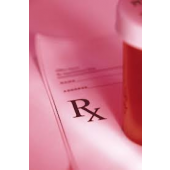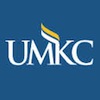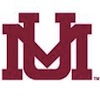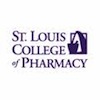Top 75 Pharmacy Schools in the U.S.

 46. University of Missouri-Kansas City, School of Pharmacy, Kansas City, Missouri
46. University of Missouri-Kansas City, School of Pharmacy, Kansas City, Missouri
Established in 1929, the University of Missouri-Kansas City is home to 15,492 students, enrolled in more than 50 majors and 125 academic areas. Commonly called UMKC, the University of Missouri-Kansas City is one of the Top 75 "Best Value" public universities in the U.S. The school, which sits on 191 acre campus, is also one of the greenest campuses in the U.S.—it ranks among the Top 100 in the nation.
The UMKC School of Pharmacy was founded in 1885 as the Pharmaceutical Department of the University of Kansas City. A member of the American Association of Colleges of Pharmacy (AACP), the School offers the Pharm.D., and Ph.D. degrees in Pharmacology and Toxicology, and Pharmaceutical Sciences.
Tuition for residents is $9,876.45 per semester (15 credit hours) and $ 20,904.95 for non-residents.
 47. University of New Mexico College of Pharmacy, Albuquerque, New Mexico
47. University of New Mexico College of Pharmacy, Albuquerque, New Mexico
The University of New Mexico was established in 1889. The school, which sits on nearly 800 acres, is home to 27,278 students and another 7,933 students at its branch campuses and education centers. The main campus is home to more than a dozen colleges and schools offering a wide variety of academic programs at all degree levels.
University of New Mexico College of Pharmacy was established in 1945. The College offers the only Pharm.D. in the State of New Mexico. In addition to the Pharm.D., the College of Pharmacy offers an M.S. in Pharmaceutical Sciences with four research concentrations, including Toxicology, Radiopharmacy, Pharmacoeconomics, and Pharmaceutical Policy and Outcomes.
The College also offers a Ph.D. in Pharmaceutical Sciences with two research concentrations including Pharmacoeconomics and Pharmaceutical Policy and Outcomes and a Ph.D. in Biomedical Sciences with a research concentration in Toxicology and Pharmaceutical Sciences.
Resident tuition for the University of New Mexico College of Pharmacy is $465 per credit hour for 1 to 11 hours and $5,580 for 11+ credit hours. Tuition for non-residents is $1,341.25 per credit for 1 to 11 hours and $$16,099.44 for 11+ credit hours.
 48. Idaho State University College of Pharmacy, Pocatello, Idaho
48. Idaho State University College of Pharmacy, Pocatello, Idaho
Idaho State University (ISU) was founded in 1901. It is a Carnegie-classified doctoral research and teaching institution that offers 75 percent of the state’s health profession degree programs. Home to nearly 14,500 students, Idaho State University has a 1,100-acre main campus in Pocatello, and additional campuses in Meridian, Idaho Falls, and Twin Falls. The University is the state's designated lead institution in health professions and medical education offering more than 280 academic programs across seven colleges and schools.
Idaho State University College of Pharmacy is the oldest of ISU’s colleges. Home to nearly 300 students, the ISU College of Pharmacy offers the Pharm.D. at the Pocatello or Meridian Idaho campuses. Year four may be completed at the any of the college's Idaho-based clinical sites in Boise, Pocatello, or Coeur d’Alene, or in Reno, Nevada.
The College also offers M.S. and Ph.D. degrees in Pharmacology, Pharmaceutics, and Drug Discovery & Development, as well as dual degrees including the Pharm.D./MBA
Pharm.D./M.S., and the Pharm.D./Ph.D., a Minor in Pharmaceutical Sciences, and a Nontraditional (distance) Pharm.D. program with an enrollment of more than 120 students.
The cost to attend Idaho State University College of Pharmacy is $8,614 per semester for Idaho residents and $16,780 per semester for non-residents.
 49. University of Rhode Island College of Pharmacy, Kingston, Rhode Island
49. University of Rhode Island College of Pharmacy, Kingston, Rhode Island
Established in 1892, the University of Rhode Island (URI) is the state’s current land, sea, and urban grant public research institution. Situated on a 1,200-acre campus, just 79 miles from Boston and 29 miles from Providence, the University of Rhode Island is home to around 16,000 students, enrolled in 80 majors across four campuses.
The College of Pharmacy is home to more than 700 students. Offerings include the Pharm.D. and M.S. and Ph.D. degrees in Pharmaceutical Sciences with specializations in Medicinal Chemistry and Pharmacognosy, Pharmaceutics and Pharmacokinetics, Pharmacoepidemiology and Pharmacoeconomics, and Pharmacology and Toxicology. The College also offers several joint degree programs and a B.S. including a Pharm.D./MBA, Pharm.D./M.S, a Pharm.D./B.A. in French, and a B.S. in Pharmaceutical Sciences.
Resident tuition is $11,532 for 9-15 credits. Tuition for non-residents is $23,606 for 9-15 credits. The school offers discounted tuition for New England residents at a rate of $17,298 for 9-15 credits.
 50. University of Montana Skaggs School of Pharmacy, Missoula, Montana
50. University of Montana Skaggs School of Pharmacy, Missoula, Montana
The University of Montana opened its doors in 1893. The school, which sits on a 56-acre main campus and a 180-acre South Campus, is one of only five public universities that rank among the Top 20 Public Universities in Producing Rhodes Scholars and it is one of the Nation’s 377 Top Institutions for Undergraduate Education according to the Princeton Review. Home to 15,000 students, the University of Montana offers more than 200 degrees and majors.
The Skaggs School of Pharmacy of the University of Montana College of Health Professions & Biomedical Sciences was established in 1907. It offers the Pharm.D. as well as M.S. and Ph.D. degrees in Medicinal Chemistry, Toxicology, and Biomedical and Pharmaceutical Science.
Tuition, fees, and the "pharmacy tuition surcharge" for the University of Montana Skaggs School of Pharmacy is $11,455 per year for Montana residents and $28,170 pet year for non-residents.
 51. Northeastern University School of Pharmacy, Boston, Massachusetts
51. Northeastern University School of Pharmacy, Boston, Massachusetts
Established in 1898, Northeastern University is a private institution that ranked #56 in U.S. News & World Report’s 2013 edition of Best Colleges, National Universities. The school, which sits on a 73-acre campus, is home to around 21,257 full-time students enrolled in more than 250 graduate and undergraduate programs throughout nine colleges and schools.
Established in 1927 as the Mariano School of Pharmacy, the Northeastern University School of Pharmacy is housed within the Bouve College of Health Sciences. The School offers the Pharm.D., and M.S. degrees in Medicinal Chemistry, Pharmacology, Pharmaceutical Sciences: Pharmaceutics and Drug Delivery Systems, and
Pharmaceutical Sciences: Interdisciplinary Concentration.
Ph.D. degree offerings include Medicinal Chemistry and Drug Discovery, Pharmacology, Pharmaceutical Sciences: Pharmaceutics and Drug Delivery Systems, and Pharmaceutical Sciences: Interdisciplinary Concentration.
Tuition for the Bouve College of Health Sciences/School of Pharmacy is $1,210 per credit hour.
 52. Drake University College of Pharmacy & Health Sciences, Des Moines, Iowa
52. Drake University College of Pharmacy & Health Sciences, Des Moines, Iowa
Drake University was founded in 1881 with just one building and 77 students. Today, the school sits in a 150-acre campus and it is home to more than 5,400 students from 49 states and 50 countries. Consistently ranked among the top schools for educational quality by U.S. News & World Report, Drake University offers more than 90 academic programs across six colleges and schools.
The Drake University College of Pharmacy & Health Sciences consistently ranks among the Top 100 Pharmacy Programs in the U.S. It is home to nearly 500 students enrolled in a variety of degree and joint degree programs. Offerings include a B.S. in Health Sciences with a Pharmaceutical Science track, the Pharm.D., and joint degree programs including Pharm.D./Law, the Pharm.D./MBA, and the Pharm.D./MPA.
Tuition for the Drake University College of Pharmacy & Health Sciences is $17,175 per semester for years 1-3, and 19,328 per semester for year 4. Tuition rates are for full-time students taking 10-18 credit hours per semester. Part-time students (years 1-3) pay $700 per credit hour and $725 per credit hour for year 4.
 53. St. Louis College of Pharmacy, St. Louis, Missouri
53. St. Louis College of Pharmacy, St. Louis, Missouri
St. Louis College of Pharmacy (STLCOP) was founded in 1864. It is the nations fourth oldest and 10th largest college of pharmacy, and one of the few pharmacy colleges to admit students directly from high school. The College, which sits on eight acres, is home to 1,350 students from 31 states and several countries. Around 75 percent of the city’s pharmacists are St. Louis College of Pharmacy graduates.
St. Louis College of Pharmacy offers the Pharm.D. and tuition costs are as follows:
Year 1: Per semester (12 to 18 credit hours): $12,259. Individual credit hours (more than 18, less than 12, and Summer session): $805. Year 2: Per semester (12 to 18 credit hours): $12,114. Individual credit hours (more than 18, less than 12, and Summer session): $805
Years 3, 4 and 5: Per semester (12 to 18 credit hours): $13,304. Individual credit hours (more than 18, less than 12, and Summer session): $885. Year 6: Summer Semester: $8,870, Fall & Spring Semester: $8,869 (each semester). Individual credit hours (more than 18, less than 12): $885.
 54. Butler University College of Pharmacy & Health Sciences, Indianapolis, Indiana
54. Butler University College of Pharmacy & Health Sciences, Indianapolis, Indiana
Butler University was founded in 1855. The school, which sits on a 295-acre campus is home to 4,771 students enrolled in more than 80 programs across six colleges. Named the No. 1 “Up-and-Coming” institution among Regional Universities Midwest by U.S. News & World Report, Butler University offers one of the regions Top 100 Pharmacy Programs.
The Butler University College of Pharmacy & Health Sciences was established in 1904. It offers the Pharm.D., a M.S. in Pharmaceutical Sciences and several dual degrees. Dual degree offerings include the Pharm.D./MBA and the Pharm.D./MPS. The cost to attend the Butler University College of Pharmacy is $643 per credit hour.
 55. Duquesne University Mylan School of Pharmacy, Pittsburgh, Pennsylvania
55. Duquesne University Mylan School of Pharmacy, Pittsburgh, Pennsylvania
Founded in 1878 as Pittsburgh Catholic College, Duquesne University ranks among the nations Top 100 Popular Schools and it was voted one of America's Best Graduate Schools (2011). The school, which sits on a 49.5-acre campus, is home to more than 10,000 students enrolled in 10 schools, 80 undergraduate programs, 85 graduate programs, and 20 post-graduate certificate programs.
The Duquesne University Mylan School of Pharmacy opened its doors in 1925 with just 50 students. Today, the School is home to more than 1,200 students, fellows, and residents. Ranked among the Top 100 Pharmacy Schools by U.S. News & World Report (2011), Mylan School of Pharmacy offers the Pharm.D. and a M.S. and Ph.D. in Medicinal Chemistry, Pharmaceutics, and Pharmacology. The School also offers a M.S. in Pharmacy Administration.
Tuition for Duquesne University Mylan School of Pharmacy is $1,207 per credit hour for the Pharm.D. program and $1,235 per credit hour for Pharmaceutical Science.
Pages

- Facebook Like
- Google Plus One
- 747336 reads


